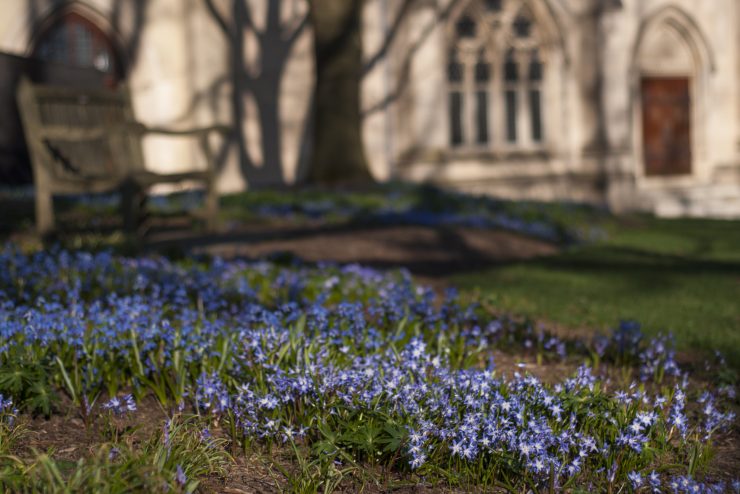Karen Miles

Reflections on a mustard seed
How often does a voice exhort us to see the big picture, to think big? But, as during Lent, when we try to reflect seriously upon the nature of our selves and the creation, what about the small picture? What great lessons and mysteries may we find in the small things that are also a part of the creation? Mark, Matthew, and Luke all recount Jesus’ parable in which he compares the Kingdom of God on earth to the lowly mustard seed. While it is the “smallest of seeds,” not only can it become the “greatest of all shrubs,” but also nurture generations of birds to come. So Jesus asks us to see the manifestation of nothing less than a new world order, not in terms of grand marble buildings and mighty armies, but in the example of an unprepossessing bush and its miniscule origins.
Several years ago, I heard a radio program on how bees choose which plants the hive will forage in for food. The scout bees communicate through a dance to the rest of the bees not only the location of the plants they investigated, but also the character, quality, and extent of the find. And the hive as a group watches these dances and decides which location and plants are their best option for food, without the individual scouts advocating for their own particular discovery—or any particular bee chairing the meeting or trying to impose her will on the group. As the researcher observed, humans would sometimes do well to make decisions the way the bees do.
More recently, I heard a report on the radio about an experiment that showed that honeybees are able to solve problems in gathering foodstuffs by various methods but especially by watching other bees that have already figured out how to overcome the obstacles. Well, we humans are OK with acknowledging the intelligence of other mammals and even other vertebrates like birds, but the invertebrates? Perhaps now, octopuses and cuttlefish, but insects? Yet, there it is. Bees observe and learn new behaviors equipped with brains, according to the researcher, only the size of a mustard seed.
So this Lenten time I am not looking to be bowled over by the big things. Where is the challenge in that? It is easy to conclude that Ishmael could not penetrate the mysteries of the whale in Moby Dick because it was just so big. However, perhaps it is equally impossible to penetrate the mysteries of bee anatomy and behavior because the bee is just so small. Surely this is worthy of our wonder, too.
And on the subject of great things in small packages, Dante’s Divine Comedy takes 100 cantos to tell us that God is love and that we need to orient our hearts, our minds, and our wills to living in His image. Depending on how you count them, Jesus tells us the same thing in fewer than fifty seemingly off-the-cuff parables.